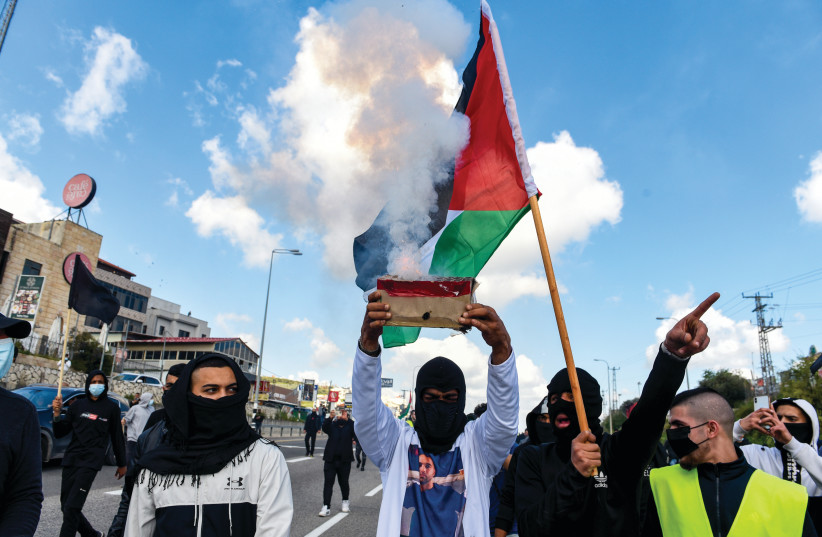An overwhelming 87% of Israelis believe a peace deal with the Palestinians in the next five years is not feasible, a survey by the Israel Democracy Institute's Viterbi Center showed.
The poll, named the Israeli Voice Index, is held monthly by Viterbi Center to remain on the pulse of public opinion on multiple issues that surround Israeli life.
It also surveyed the Israeli public's priorities for the next year, and its concern over a nuclear Iran, the Abraham Accords and Prime Minister Naftali Bennett's speech at the UN General Assembly in September.
Over half of all Israeli-Arabs questioned said that violence and crime plaguing the Arab sector should be the government's number one priority.
However, most of the Jewish public sees the stabilization of the economy as the government's biggest challenge over the next year. Interestingly, the Israeli-Palestinian conflict is of the lowest importance for most Israelis, regardless of political leaning.
When questioned on the possibility of Iran obtaining nuclear capabilities, 47% of Israelis believe it is unlikely that a nuclear missile will be launched toward the Jewish state, while 37% believe it to be probable.
Almost half of Israelis surveyed believe Israel should have conducted a military operation against Iran during the earlier stages of its nuclear development and 27% think the correct course of action should be to reach an agreement that will deny the Islamic Republic nuclear missiles.

A majority of 61% believe the normalization with Bahrain and the United Arab Emirates (UAE) bore fruit, with a more decisive agreement (71%) coming from those who described themselves as right-wing.
Lastly, Israelis were shown to be critical of Naftali Bennett's speech a the UN General Assembly in September, with only 18% of Israelis questioned thinking it was either good or great.
